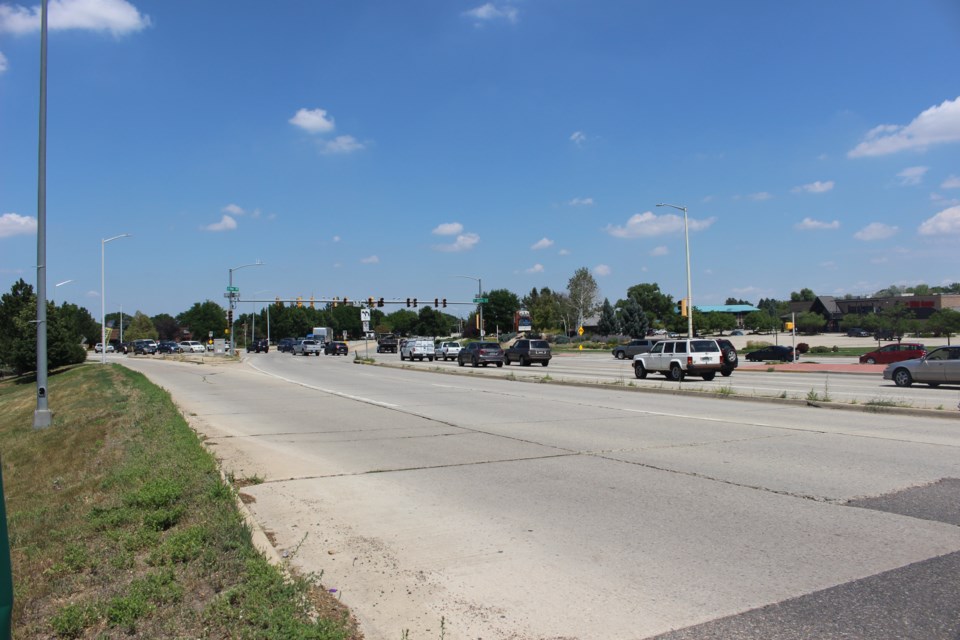Mayor Brian Bagley said Thursday work on widening and improving Colo. 119 between Longmont and Boulder remains a top priority. The revamping includes the introduction of Bus Rapid Transit, or BRT, along the corridor.
“... Widening lanes and fixing intersections will increase traffic flow and BRT will increase traffic flow quite a bit,” Bagley said during the 12th Legislative Breakfast, sponsored by Louisville-based Commuting Solutions.
Commuting Solutions is a service organization that advocates transportation options for commuters and local governments in Boulder and Broomfield counties, according to the group’s website.
Bagley, in addition to being Longmont mayor, also serves as the liaison for the city on the U.S. 36 Mayors and Commissioners Coalition. Bagley and Rob Zuccaro, Commuting Solutions’ executive board chairman, during a video presentation told breakfast participants that several projects are underway along major transportation corridors in the northwest region.
The Colo. 119 corridor expansion remains on schedule, Bagley said. Currently, 45,000 vehicles a day travel along the corridor, which also is known as the Diagonal Highway, according to Commuting Solutions.
The Colo. 119 project, including adding BRT service, will cost an estimated $253 million, So far, $93 million has been set aside for the corridor with the first phase of construction planned for 2023, Audrey DeBarros, executive director of Commuting Solutions, said in an email. The Colorado Department of Transportation is starting the first design of the corridor this year, she said.
Bagley said there is still hope some form of passenger rail will operate in the northwest corridor in the near future, even though Longmont residents are skeptical. Longmont and Boulder were promised a portion of rail when the 0.4% FasTracks tax was passed in 2004 by metro-area voters.
But financial problems have hampered RTD’s plans for connecting Longmont by rail.
“Everyone in Longmont rolls their eyes when they hear about FasTracks,” Bagley said. “We continue to pay for a train we never got.”
Another passenger rail line with a Longmont stop — and a first phase price tag of $1.5 billion to $2.5 billion — also has been proposed and has earned city council support. The 191-mile-long passenger rail system between Fort Collins and Pueblo would make stops in Longmont and carry an estimated 2.9 million passengers a year. Council last month voted unanimously to have city staff members write letters to state and federal officials backing the Longmont-friendly alignment suggested by the Front Range Passenger Rail Commission.
While rail remains elusive, Gov. Jared Polis told breakfast participants the newly Democratic-controlled Congress will likely approve more funding for state and local transportation needs.
“There will be additional state and local support for transportation from the federal government,” Polis said.



